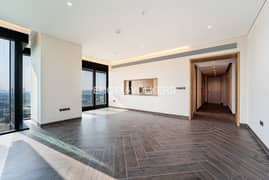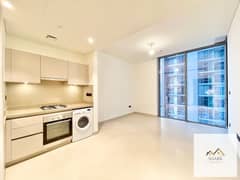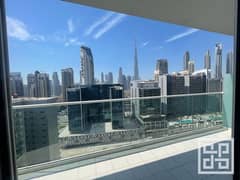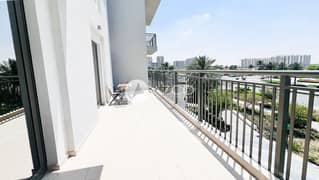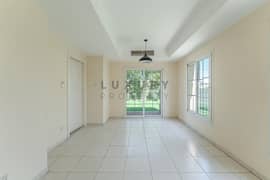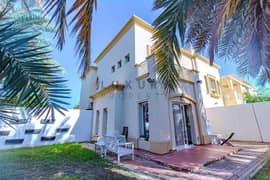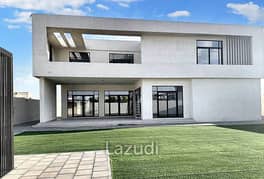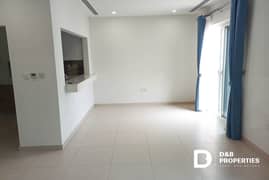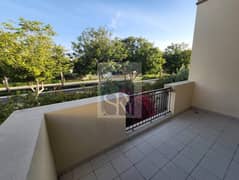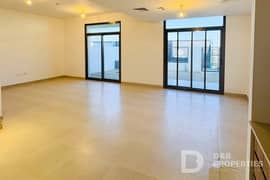All about short-term rental contracts in Dubai
- What are Short-term Rental Contracts?
- Benefits of Short-term Rentals
- Short-term Rental Contracts in Dubai
- What Tenants Should Know About Short-term Rentals
- Popular Areas for Short-term Rental Properties
More and more homeowners now choose to rent their property short-term rather than the usual annual lease. Short-term rental contracts in Dubai benefit owners, providing more flexibility and the opportunity to increase their returns. Today, MyBayut presents a quick guide to leasing properties on a short-term basis in Dubai. Learn more about the necessary permits, how to go about short-term rental contracts in Dubai and the best locations for finding such properties.
What does short-term rental mean?
Short-term rental properties in Dubai are typically rented out monthly, weekly or even daily. These properties for rent in Dubai are mostly furnished and include water, electricity and internet utilities.
Properties rented short-term are called ‘holiday homes‘ and could include apartments in mixed-use or residential buildings or independent villas. However, it’s important to note that the entire property must be rented out for short-term rentals, not just part of the unit.
Please remember that as per the Dubai Department of Economy and Tourism, hotel and hotel apartment buildings are NOT permitted to host holiday homes.

What are the benefits of short-term rental contracts in Dubai?
Both landlords and tenants enjoy certain benefits with short-term rental contracts in Dubai.
With short-term rent in Dubai, landlords have the flexibility to lease their property for the duration that they would like. Moreover, landlords can increase their rental returns with short-term rental properties by adjusting the price depending on seasonal demand.

- STUDIO
- |
- 1 BATH
- |
- 398 SQFT

- 1 BED
- |
- 1 BATH
- |
- 486 SQFT
On the other hand, tenants living in short-term rental properties in Dubai benefit from having a fully-furnished property with all the utilities. You can also forget the hassle and cost of setting up a property. Our in-depth guide on short-term vs long-term rentals in Dubai lets tenants learn more about the contract type they should opt for.
How do short-term rental contracts in Dubai work?
Unlike long-term rentals, short-term rental contracts do not have to be registered in the Ejari system. Instead, short-term rentals are regulated by the Department of Economy and Tourism (DET).

Properties to be rented out on a short-term basis require a permit and approval from the DET before being leased to tenants. Homeowners in Dubai, who want a permit for a short-term rental property, can either register themselves as an individual operator on the DET website or employ the services of licensed operators, who will take care of the process for them.
It’s important to note that tenants can also sub-lease their property on a short-term basis, provided they have a no-objection certificate from the property owner.
All types of units are eligible for short-term rental contracts except hotel apartments. Any house in a gated community with at least four units can be rented out. Moreover, villas on highways can operate as holiday homes.
Registration and permit
Individual operators, such as homeowners or tenants, must register themselves on the Department of Economy and Tourism website as the first step. They can do so through the Holiday Homes section and register as a ‘Homeowner.’
In addition, commercial villas positioned on highways can be operated as holiday homes, as per DTCM rules.
To register, individual operators must upload copies of their Emirates ID or passport and fill out the required information. The registration fee as an individual operator is AED 1,500 (+ AED 10 knowledge fee + AED 10 innovation fee).
Once a homeowner is registered, they can apply for the necessary permit for their property. Homeowners should remember they can apply for permits for eight properties (maximum). To acquire permits for more properties, they must obtain a trade licence and register as a professional operator.
When applying for a DET permit for short-term rentals, homeowners must upload the property title deed and the DEWA bill under the owner’s name.
However, if a tenant is subletting a property on a short-term basis, they will be required to upload additional documents, including:
- The lease agreement, which also mentions the sub-leasing clause
- NOC from the owner, which must be in the DTCM template
- Owner’s passport or Emirates ID
The permit fees for short-term rental apartments and villas are as follows:
- Studio or 1-bedroom: AED 370
- 2-bedroom: AED 670
- 3-bedroom: AED 970
- 4-bedroom and above: AED 1,270
- The permit for short-term rent in Dubai is valid for one year and must be renewed annually.
- A holiday home permit is issued for 3 months to 12 months (maximum).
- Permit fees are irrespective of the validity period.
Operating your short-term rental property in Dubai
Once the Department of Economy and Tourism has issued the short-term rental permit in Dubai, homeowners can start advertising their listing on property portals like Bayut. This allows guests to filter between daily, weekly and monthly rental properties. Remember that tenants must rent out the entire unit, and the homeowner cannot simultaneously occupy part of the property.

According to DET, operators for short-term rental properties in Dubai should have insurance that covers risks posed to guests, the property or the building. DET recommends informing the building management beforehand about the short-term rental operations for apartments.
It’s important to note that no specific DET template exists for a short-term rental contract between the operator and the guest. However, operators must register all guests who check in to the property onto the DTCM system.
When guests check in to the property, the operator must upload either a copy of the National ID (for GCC Citizens) or the passport (for all other nationalities) for all the guests.
Tourism Dirham
One of the taxes charged in the UAE, the Tourism Dirham, is levied on guests by hotels, hotel apartments and short-term rental properties in Dubai. Tourism Dirham is charged to help develop the trade and tourism sector in the emirate.
Operators of properties on short-term lease in Dubai will collect Tourism Dirham from their guests on DCTCM’s behalf. The total Tourism Dirham amount collected monthly must be paid to the Dubai Corporation for Tourism and Commerce Marketing by the 16th of the following month.
HOW IS THE TOURISM DIRHAM CALCULATED FOR SHORT-TERM RENTAL PROPERTIES?
Tourism Dirham is charged per night per room occupied for short-term rentals in Dubai. The amount charged for Tourism Dirham depends on the category of the property: standard or deluxe. The classification of short-term rental properties in Dubai is done when applying for the DTCM permit.
The Tourism Dirham fee for standard or deluxe properties (per night per room) is as follows:
- Standard: AED 10
- Deluxe: AED 15
The Tourism Dirham fee for a guest’s stay will be calculated when the operator checks out the guest through the DTCM system. When presenting the bill or invoice to the guest, the operator must list the Tourism Dirham fee as a separate charge.
It’s important to note that Tourism Dirham is only charged for the first 30 consecutive days of the guest’s stay.
QR CODE
The Department of Economy and Tourism (DET) has also introduced a QR code system for holiday homes. Homeowners are now required to display a QR code at the entrance of their properties. This will allow visitors to scan and obtain information about the operators of the property and the contact details of DET. The addition of a QR code will facilitate oversight and inspections conducted by the Dubai Corporation for Consumer Protection and Fair Trade and increase transparency.
.@DubaiDET announces the launch of a new QR Code initiative for Holiday Homes in #Dubai, as part of efforts to improve transparency and increase confidence among investors and visitors in the short-term rental market. This code enables visitors and guests to conveniently scan it… pic.twitter.com/3rMAV8X7Jq
— Dubai Media Office (@DXBMediaOffice) May 29, 2023
FAQS ABOUT SHORT-TERM RENTAL CONTRACTS IN DUBAI
What should tenants know about short-term leases in Dubai?
Before entering a short-term rental contract in Dubai, there are certain points that tenants or guests should be aware of:
- The rental price advertised for short-term apartments and villas typically does not include additional charges such as VAT, Tourism Dirham and refundable deposits.
- On the other hand, the rental price does include utilities such as internet, water and electricity and can consist of other benefits such as housekeeping and in-house maintenance.
- Many short-term rental contracts in Dubai require guests to stay for a minimum number of nights.

Which areas are popular for short-term rental properties in Dubai?
Since short-term rentals in Dubai are popular among tourists and business travellers, such properties are usually found in centrally-located areas close to the city’s landmarks and leisure and commercial hubs.

Most apartments for short-term rent in Dubai are typically located in popular areas. For instance, there are many options for short-term rentals in Dubai Marina, Jumeirah Beach Residence, Downtown Dubai and Business Bay. These areas boast famous attractions, easy access to the city’s landmarks and elegant properties. There are many apartments for monthly rent in Discovery Gardens, too, with shopping destinations such as Ibn Battuta Mall and Festival Plaza nearby.
Those who look at villas on short-term rentals in Dubai will typically find such properties in the iconic destination of Palm Jumeirah, which offers luxury beachfront villas close to waterparks and resorts.
Short-term villa rentals in Dubai can be found in the neighbourhood of Jumeirah Village Circle. The area offers affordable options within a short distance from Dubai Marina and JBR and attractions like IMG Worlds of Adventure and Global Village.
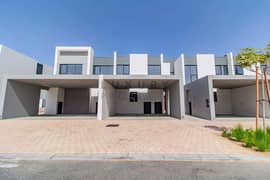
- 4 BEDS
- |
- 4 BATHS
- |
- 2971 SQFT
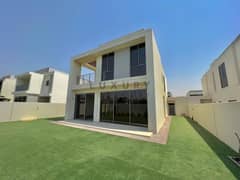
- 4 BEDS
- |
- 4 BATHS
- |
- 3521 SQFT
I need more information on short-term leases. Who should I contact?
If you have any further questions on short-term accommodation in Dubai, contact Dubai Economy and Tourism at 600-555-559.
And that concludes our guide to short-term rental contracts in Dubai! If you’d like more information on leasing holiday homes in Dubai, look at our Expert Advice, where the Co-founder of Driven Holiday Homes gives further insight into the process.
If you’re a business traveller looking for a place for a longer stay or a family searching for the dream home, browse our listings for apartments in Dubai for monthly rent. For tourists who want privacy and comfort in their accommodation, listings on Bayut have many studio apartments for weekly rent in Dubai.
Stay tuned to MyBayut to learn more about the real estate sector in the UAE.



